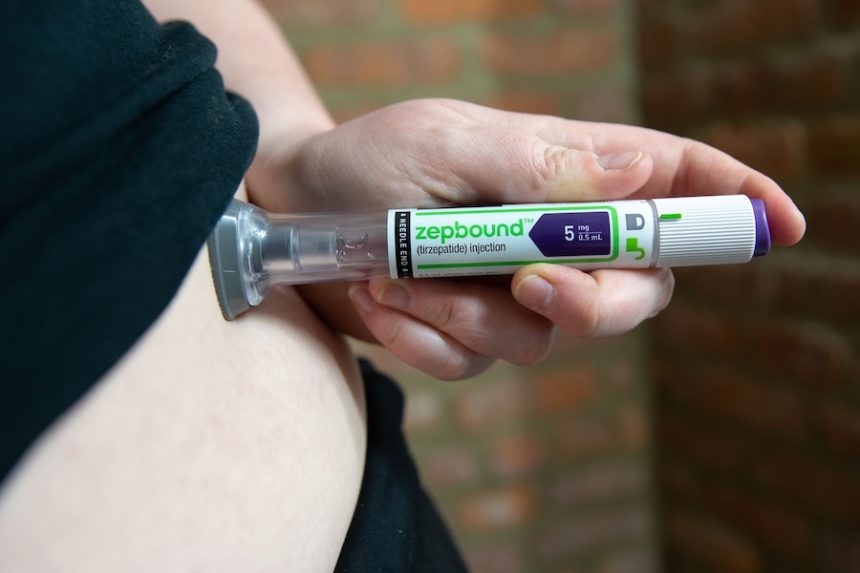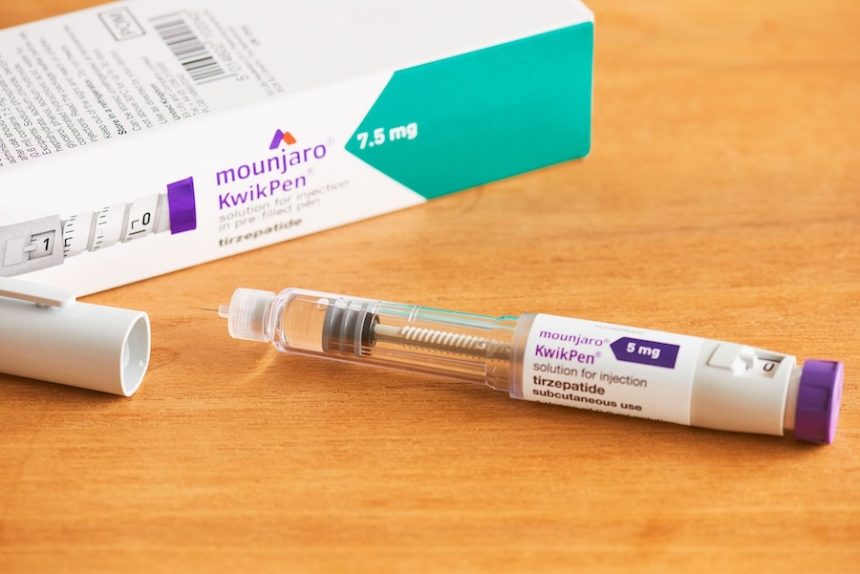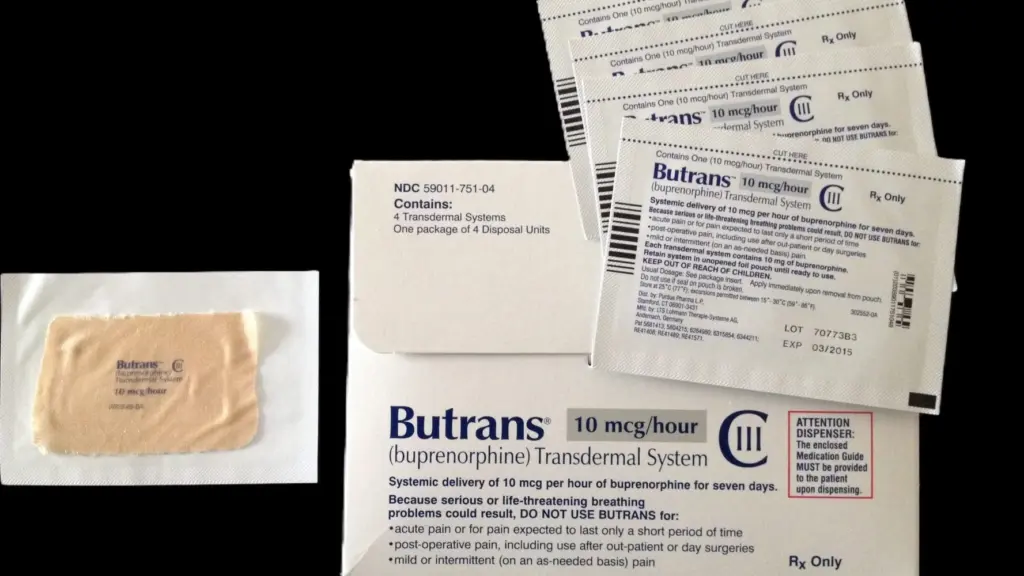(CNN) Tara Eacobacci’s doctor’s appointment last week was solely focused on the subject of health insurance. The medication she was taking to control her weight—a treatment that had taken years of trial and error to perfect—would no longer be covered by insurance due to a significant change in her prescription benefits.
“I’m furious,” Eacobacci declared. Not only is it stressing me out, but it’s also making me upset.
Beginning Tuesday, Eli Lilly’s Zepbound, a popular GLP-1 medication that has been authorized by the US Food and Drug Administration since November 2023 for the chronic weight management of adults who are obese or overweight, will no longer be covered by CVS Caremark, a significant pharmacy benefit manager that acts as a middleman for health insurers, big employers, and other payers to manage their prescription drug plans.
In a statement addressed to its Zepbound patients in May, CVS Caremark stated that this change was being made because there is alternative covered drug that is safe, effective, and possibly less expensive for your illness. Please be aware that you will be responsible for the entire cost if you refill your current prescription on or after July 1, 2025.
Plans run by CVS Caremark will continue to cover Wegovy, a GLP-1 drug used to treat obesity that is made by Novo Nordisk, a competitor of Lilly, as well as a few other drugs that are generally less effective.
According to CVS, the choice to cover Wegovy but not Zepbound is making the pharmaceutical companies compete with one another and will push Novo Nordisk and Eli Lilly to reduce the cost of their drugs in the US.
According to a statement from CVS Health, the single largest obstacle to patient access to GLP-1s for weight loss is the outrageously high list prices set by pharmaceutical companies. Our formulary approach uses competition to drive down costs while maintaining clinically acceptable coverage.
However, pharmacy benefit managers—of which CVS Caremark is one of the biggest—have come under fire for their part in the US’s growing prescription prices.
The most popular formulary template used by CVS Caremark, which serves between 25 and 30 million people overall, is affected by the coverage change. According to CVS Health, the subset of members who use weight-loss medications selected Wegovy and Zepbound at about equal numbers when given the option.
Regarding weight loss, patients and doctors contend that GLP-1 drugs are not interchangeable and that inconsistent insurance coverage runs counter to the research and experience of those dealing with obesity as a chronic illness.
The majority of society does not view obesity as a chronic, long-term illness, and we continue to seek out short-term cures when the biology and disease process do not support them. According to Dr. Tracy Zvenyach, director of policy strategies and alliances at the nonprofit advocacy organization Obesity Action Coalition, attitudes still do not match the science.
These exclusionary rules and extremely onerous utilization management techniques, which essentially just create one obstacle after another to keep patients from receiving the care they require, are what we see when decision-makers fail to recognize obesity as a chronic, long-term illness. It’s not acceptable. With other chronic illnesses, we don’t do that.
The system of try and error
According to Dr. Jody Dushay, an endocrinologist at Beth Israel Deaconess Medical Center and assistant professor of medicine at Harvard Medical School, creating a GLP-1 medication treatment plan that works for each patient takes time. Some people may experience more severe side effects, such as severe constipation, nausea, or stomach discomfort, with one medicine than another, or they may get an allergic response at the injection site.
According to her, adjusting to a new prescription may frequently disrupt a patient’s weight-loss progress, and the trial-and-error process could result in significant waste for drugs that were previously in short supply.
I receive a ton of communications from people as soon as these statements [about changes to insurance coverage] are made, she said. For patients who have been doing well, who have a decent tolerance, and who believe they have found their rhythm with regard to their medication, diet, and exercise, it can be extremely distressing. When everything is moving in the right way, switching can be rather upsetting.
Dushay claims that when she sees the small box with the patient’s insurance information while perusing their medical report, her stomach turns.
That tiny portion of the chart determines a lot of their care in this area of weight management. The extent to which insurance affects the clinical care I provide and the options available to me is unparalleled, she added.
Clinical care is also compromised while considering how to handle insurance-mandated therapy modifications.
According to Dushay, there is hardly any time to inquire about the patient’s overall health, weight loss, side effects, and how they are feeling. Doctors’ and pharmacists’ time burden outside of visits has increased significantly, and they are losing time for patient care.
A significant portion of Dushay’s patients will be impacted by another significant insurance reform that is scheduled for next year: All GLP-1 medications will no longer be covered by BCBS Massachusetts for the treatment of obesity as of January; instead, coverage will only be granted for these medications when they are prescribed to treat type 2 diabetes.
Obesity is a crisis in the country. In a statement, David Merritt, senior vice president of external affairs for the Blue Cross Blue Shield Association, stated that the organization works hard to help its members reach a healthy weight by expanding their access to wholesome food, physical activity programs, and high-quality clinical care when necessary. We are as excited as the many patients who have used GLP-1s about their actual weight loss achievement. There is still more to learn to make sure patients are prepared for success, just like with any new drug. According to a research we released last year, about 60% of people do not continue taking GLP-1s long enough to experience significant weight loss. Even while adherence is getting better, more information is required to make sure that these pricey drugs benefit patients and the healthcare system in the long run.
Frustrated patients and doctors
There are distinctions between Zepbound and Wegovy, despite the fact that both medications are FDA-approved and effective for treating obesity.
According to studies, those who used tirzepatide injections, like Zepbound, were more likely to lose weight and meet certain weight reduction goals than those who took semaglutide drugs, like Wegovy. The two medications have distinct, more comprehensive indications; for instance, Zepbound is authorized to treat obesity-related sleep apnea. Additionally, side effects can differ, which can occasionally make one medication more acceptable than another.
Many patients are upset and worried about their health and well-being because CVS Caremark provides few tools to proactively prepare for the shift, while those who have had success using Zepbound may be able to request an exception after the insurance coverage changes.
According to Eacobacci, the insurance modifications and the sentiment that underlies them are divisive and biased.
Before being approved for Zepbound this year, CVS Caremark had forced her to try several alternative therapies and demonstrate that they were ineffective. Despite maintaining a regular diet and exercise routine, she said that while on Wegovy, her A1C glucose levels began to approach prediabetic levels. After she began using Zepbound, everything changed.
I feel better. I don’t feel as bloated. I move quite differently. I fit into my clothes, but I also feel validated because all of these years, doctors say to you, Oh, you can t eat all that cake and candy, and they don t believe that you re not, Eacobacci said. In fact, the drug confirmed some of this. Like, hey, I do need support. I can t do this on my own as much as I m trying.
Medication changes could have unnecessarily dangerous impacts on physical health Eacobacci said she gained 10 pounds and saw her A1C levels spike in just one month without the medication as well as mental health.
Weight stigma and bias has affected us nationwide, said Eacobacci, who is worried about many people she knows who have felt depressed after the hearing the news about changes in insurance coverage. You made me jump through hoops. I got the prior authorization you required for me, and now you re mid-year taking it away from me is so impactful that it should be illegal.
Although coverage exceptions may be an option, the appeals process takes time.
It gets really, really frustrating to have to justify what I want to do all the time just because of money, Dushay said.
For people who do lose coverage of Zepbound, drugmaker Eli Lilly has expanded access through LillyDirect, a company platform that helps coordinate telehealth services and fill prescriptions for patients who pay out-of-pocket. Single-dose vials are available for $499 per month through the LillyDirect Zepbound Self Pay Journey Program, with the highest doses available beginning July 7.
We re confident in Zepbound s performance and remain committed to ensuring patients have access to the treatment they need, Lilly said in a statement.












